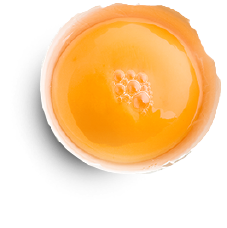Filter By

Updated Q&A on Avian Influenza
Despite egg farmers rigorous biosecurity efforts avian influenza has been found on commercial egg farms in the U.S. Egg farmers continue to be vigilant in biosecurity measures to limit the spread of the disease.
It’s important to note avian influenza cannot be transmitted through safely handled and properly cooked eggs. The strains of AI that have been found in the U.S. have not affected humans to date and are not considered a public health concern.
The Egg Safety Center and the United Egg Producers have compiled the following information to answer consumer questions:
What is avian influenza?
Avian influenza (AI), a virus commonly known as the “bird flu,” is an infectious disease of birds caused by type A strains of the influenza virus.
As a consumer, what should I know about the identification of avian influenza (AI) in the U.S.?
America’s egg farmers understand and share consumers’ concerns about AI. Together with turkey and chicken producers, egg farmers have put comprehensive measures in place to limit the spread of avian influenza.
Is there AI on egg farms?
Yes, there have been positive findings of AI on commercial egg farms. Egg farmers are working diligently to care for their flocks and prevent the disease from entering their farms.
Are the current findings of AI a risk to public health?
The identified strains found on commercial egg and turkey farms have not affected any humans and are not considered a risk to public health.
Can I catch AI from the eggs or meat I eat?
No. Avian influenza can’t be transmitted through safely handled and properly cooked eggs, chicken or turkey. As a reminder, however, all eggs, chicken and turkey should be cooked thoroughly and at the recommended temperatures to reduce the risk of food-borne illnesses. To learn more about cooking and handling eggs, visit USDA’s food safety question and answer page or the Egg Safety Center.
How are Egg Farmers Responding?
What is United Egg Producers (UEP) doing about this situation?
America’s egg farmers continue to be vigilant in keeping their flocks free from disease and assuring the safety of eggs and egg products provided for customers. There is close collaboration between UEP and others in the egg, chicken and turkey farming communities to share information and prevent AI from further spread. In addition, state and federal regulatory authorities are working hand in hand to limit occurrence of this disease and to continue surveillance programs.
What preventive measures are in place to protect humans from this disease and to prevent the disease from spreading to other flocks?
Egg farmers employ a number of rigorous biosecurity guidelines, including, but not limited to:
- Restricting on-farm access to essential employees only;
- Following on-farm disinfecting procedures, such as the use of foot baths;
- Housing hens indoors to prevent access to wild birds and waterfowl;
- Limiting movement between farm operations;
- Requiring protective gear be used at all times for anyone who enters egg farms; and
- Working closely with animal health experts and veterinarians to monitor flocks.

 Back
Back